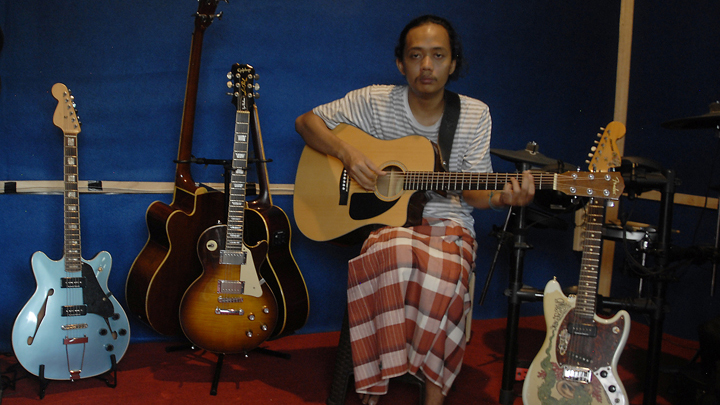Fajar Merah, Musician: Human Rights Violators Are Cowards
Tuesday, January 28, 2020
arsip tempo : 171411144669.

In this album, titled Nyanyian Sukma Lara (Songs of a Soul in Comtemplation), Fajar and his band, Merah Bercerita, formed in 2010, have decidedly broken out of their comfort zone and freed themselves from the long shadow of Wiji Thukul. Fajar said this second album is an achievement. “I am in a different class from Wiji Thukul, I have different topics, use a different language. And I can’t force other people to consider my work
...
Subscribe to continue reading.
We craft news with stories.
 For the benefits of subscribing to Digital Tempo, See More
For the benefits of subscribing to Digital Tempo, See More








